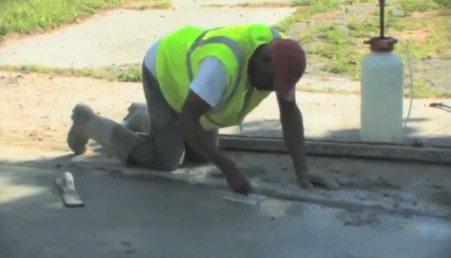Cross-posted from Green For All.
More than 3.1 million Americans have a green job, according to a new report released last week by the Bureau of Labor Statistics. At Green For All, we’ve spoken to thousands of Americans who lost their jobs five and six years ago and have found jobs in the clean energy field, making their communities safer for their children while earning a decent paycheck. As part of our ongoing Green Jobs for America video series, we took a closer look at one of the cities where green jobs are helping improve the community.
Kansas City, like many American towns, is burdened by pollution from coal-fired power plants, unemployment, and poverty. Faced with bitterly cold winters and scorching summers, the city’s residents struggle to keep up with steep energy bills. Our new video shows how Green For All’s local partners are helping forge a path to a cleaner, more prosperous future in Kansas City — putting people to work, cleaning up the city’s air and water, and cutting energy costs.
Kansas City is home to a Green Impact Zone — an innovative program designed to transform entire communities through investment in sustainability. The program is the brainchild of Rep. Emanuel Cleaver II (D-Mo.), one of our allies and chair of the Congressional Black Caucus.
The idea is to target one specific community for green investment from stimulus funds and other sources. In this case the community is a 150-square-block area of Kansas City with an unemployment rate of close to 50 percent, a median home price of under $30,000, and roughly a quarter of its property vacant. The Green Impact Zone provides job training, upgrades buildings to make them more energy-efficient, and targets problems like what to do with wastewater and vacant lots. Already, the zone is improving Kansas City’s poorest neighborhoods and putting people to work.
Solutions are also coming from people like Jensen Adams, one of Green for All’s Energy Efficiency Working Group members, who, through his work with the Metropolitan Energy Center, is helping connect underrepresented folks — including people of color and women — to opportunities in the green economy.
Thanks to these initiatives, we expect to see more and more people like Donna Sanders, a minority woman who runs a successful Kansas City business, 106 Greenway, that makes homes safer and more energy efficient. Together, these leaders are creating pathways to a brighter, more prosperous future in Kansas City.


